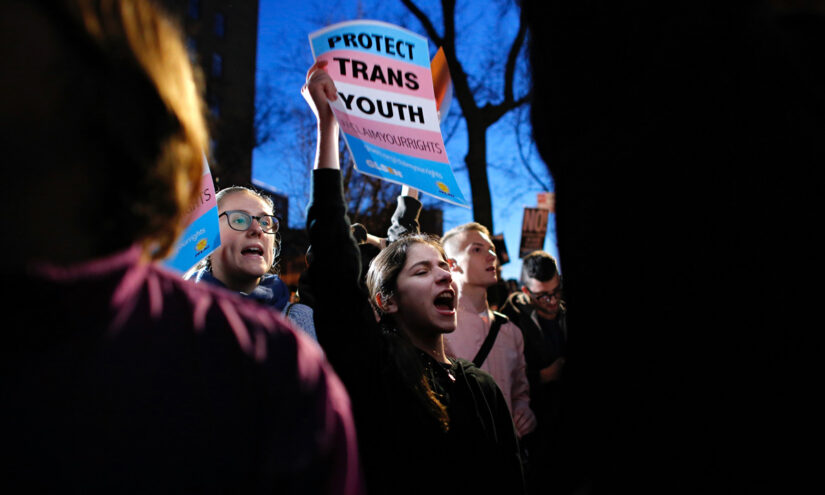During this summer, a team of students from MIT embarked on a journey to the sou …
NYC Parent Council Pushes for Policy Change on Transgender Sports, Chancellor Disapproves
Carlos Changemaker

An education council in a major liberal district in New York City has approved a resolution calling for a review of gender guidelines affecting student athletes, potentially impacting trans students’ involvement in school sports.
In a decision criticized by advocates and lawmakers as harmful to trans students, who worry any changes to inclusive 2019 guidelines may lead to increased bullying and violence, the resolution passed by an 8-3 vote on Wednesday evening.
A MANHATTAN @NYCSchools Community Education Council is proposing a resolution targeting transgender girls in sports. My response with @bradhoylman @DeborahJGlick @tonysimone pic.twitter.com/Itw7bIQnRr
— Erik Bottcher (@ebottcher) March 20, 2024
NYC Schools Chancellor David Banks emphasized the importance of supporting trans students in sports, stating, “They need love, encouragement, and support, not political attacks,” following the resolution’s approval.
Expressing concern over the high rates of suicidal tendencies and abuse among trans youth, Banks criticized the resolution as “despicable” and questioned the need for targeting vulnerable students.
During a community education council meeting in District 2, ACLU lawyer Chase Strangio highlighted the alignment of current gender guidelines with state law, criticizing the resolution for singling out trans youth and creating unnecessary challenges for them.
Strangio, a trans individual, voiced opposition to the resolution, stating, “I will not stand by and witness misguided efforts that harm my community, especially in NYC, the home of influential trans figures in history.”
The resolution calls for the formation of a committee to reassess gender guidelines, inviting input from various stakeholders, and raising concerns about the existing barriers, particularly affecting female students, as stated in a Politico report.
Despite the council’s advisory role and criticism from Chancellor Banks, it is unlikely that the Department of Education will adopt the council’s recommendation regarding the gender guidelines.
Community Board 2 issued a resolution demanding adherence to anti-bullying guidelines for LGBTQ students, emphasizing the need to address violations for fostering a safe learning environment, including potential penalties for non-compliance.
Locals in District 2, known for its progressive neighborhoods like Chelsea and Greenwich Village, oppose the restrictions on LGBTQ student rights, citing the lack of public support for the gender resolution.
Community feedback highlighted strong resistance to the gender resolution, with the majority of emails received expressing opposition to the resolution’s content ahead of the council vote.
Several states, primarily in the South and Midwest, have introduced bans restricting trans youth from participating in sports aligned with their gender identity, reflecting a broader trend across the country.
Parent leaders with conservative educational agendas influenced the introduction and passage of the resolution in NYC, reflecting a growing influence of conservative voices in education policy, with implications for LGBTQ students.
Opponents of the gender resolution in NYC argue it serves as a platform for conservative groups to advance their agenda, leveraging national concerns to influence local policies and decisions.
Legal experts warn that the gender resolution in NYC poses significant risks and lacks enforceability, drawing parallels to ongoing legal disputes in nearby areas over similar gender-related policies.
Brooklyn College professor David Bloomfield emphasizes the rights of elected officials to express their policy preferences, highlighting the contentious nature of educational policies in diverse communities.
NYC Councilmember @ebottcher criticizes the call for female athletes’ input on gender concepts’ impact on sports opportunities, labeling it as #misogyny. https://t.co/aSPp3Wrfl1
— Maud Maron (@MaudMaron) March 21, 2024
The Council’s simultaneous passing of conflicting resolutions indicates the complexity of educational policymaking, with divisions among members on supporting LGBTQ students and addressing gender-related concerns.
An online petition calling for the removal of a council member from student leadership positions gained traction following controversial remarks, raising concerns about bullying and free speech within the school community.
Parents and students express apprehension over the impact of divisive policies on the school environment, emphasizing the need to prioritize student well-being and academic success without unnecessary political pressures.
Concerns over potential liabilities and community vulnerabilities prompt discussions on ensuring inclusive and safe learning environments for all students, reflecting broader tensions over educational policies.


